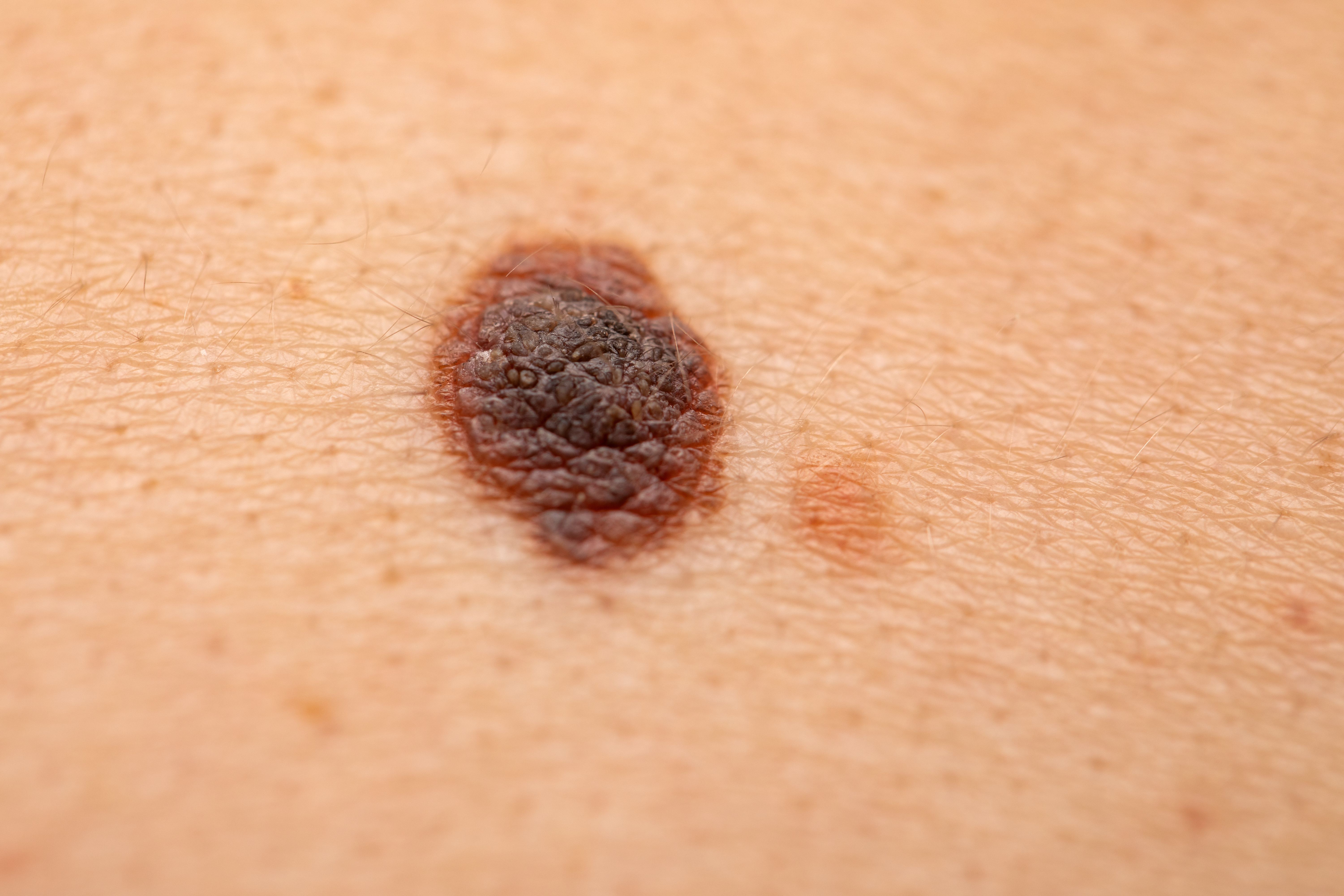- General Dermatology
- Eczema
- Alopecia
- Aesthetics
- Vitiligo
- COVID-19
- Actinic Keratosis
- Precision Medicine and Biologics
- Rare Disease
- Wound Care
- Rosacea
- Psoriasis
- Psoriatic Arthritis
- Atopic Dermatitis
- Melasma
- NP and PA
- Skin Cancer
- Hidradenitis Suppurativa
- Drug Watch
- Pigmentary Disorders
- Acne
- Pediatric Dermatology
- Practice Management
Neoadjuvant-Adjuvant Pembrolizumab Better Than Adjuvant-Only in Melanoma
The PD-1 inhibitor pembrolizumab has proven its efficacy in a number of different cancers.
Advances in immunotherapy including the use of monoclonal antibodies, immune checkpoint inhibitors, cancer vaccines, and cell-based therapies have given much-needed hope to cancer patients. Pembrolizumab (KeytrudaÒ, Merck) is a PD-1 immune checkpoint inhibitor that is FDA-approved to treat an increasing variety of tumors such as breast cancer, cervical cancer, Hodgkin lymphoma, and squamous cell carcinoma, and has also shown significant therapeutic success in resectable stage III or IV melanoma. A recent clinical trial demonstrated that the administration of the drug both preoperatively and postoperatively in a neoadjuvant/adjuvant setting is significantly more beneficial in terms of outcomes than administering postoperatively (adjuvant) alone.1
Ocskay Mark/AdobeStock

“In situations where pembrolizumab is given for operable early-stage melanoma, as opposed to inoperable or metastatic melanoma, administering the drug in a neoadjuvant-adjuvant protocol as opposed to entirely postoperatively appears to be the best way to improve outcomes. In all of oncology, this is currently the only neoadjuvant plus adjuvant versus adjuvant-only study,” said Sapna P. Patel, MD, medical oncologist and Associate Professor, Director of the Uveal Melanoma Program, and Melanoma Fellowship Program Director at the University of Texas MD Anderson Cancer Center, Houston, Texas, and lead author of the study.
The phase 2 trial included 313 patients with clinically detectable, measurable stage IIIB to IVC melanoma that was amenable to surgical resection. Patients were randomly assigned to receive 3 doses of neoadjuvant pembrolizumab, surgery, and then 15 doses of adjuvant pembrolizumab (neoadjuvant/adjuvant group; n=154 patients), or to surgery followed by pembrolizumab (200 mg intravenously every 3 weeks for a total of 18 doses) for approximately one year or until disease recurred or unacceptable toxic effects developed (adjuvant-only group; n=159 patients).
Primary endpoint of the study was event-free survival in the intension-to-treat population, where events were defined as disease progression or toxic effects that precluded surgery; the inability to resect all gross disease; disease progression, surgical complications, or toxic effects from treatment that precluded the initiation of adjuvant therapy within 84 days after surgery; recurrence of melanoma after surgery; or death from any cause. Study investigators also evaluated the safety of the drug.
At a median follow-up of 14.7 months, results showed that the neoadjuvant/adjuvant group had a significantly longer event-free survival compared to the adjuvant-only group. In the landmark analysis, data showed the event-free survival at 2 years was 72 percent and 49 percent in the neoadjuvant/adjuvant and adjuvant-only groups, respectively.
“I think we have now clearly proven the case that giving resectable melanoma patients preoperative immunotherapy in addition to adjuvant immunotherapy is better than reserving all the pembrolizumab for the postoperative stage. We have essentially shown that in patients with any resectable melanoma of stage III and above where adjuvant therapy was already going to be considered, giving them just 3 doses of pembrolizumab before their surgery results in far better outcomes,” Patel said.
Regarding safety, it was found that the percentage of patients with treatment-related adverse events of grade 3 or higher during therapy was 12 percent in the neoadjuvant/adjuvant group compared to 14 percent in the adjuvant-only group.
“Fortunately, in our study, no new safety signals were found. In the neoadjuvant period, there were the expected side effects, which occurred in less than 2 percent of the study population, however, they did not lead to any untoward outcomes for those patients as only 1 patient did not have surgery due to toxicity from immunotherapy,” Patel added.
Nivolumab (OpdivoÒ, Bristol-Myers Squibb) is another immunotherapy blocking PD-1 that can be used alone or in combination with other agents such as ipilimumab (YervoyÒ, Bristol-Myers Squibb) for the treatment of an array of cancers including esophageal cancer, gastroesophageal cancer, stomach cancer, colorectal cancer, non-small lung cell carcinoma, renal cell carcinoma, hepatocellular carcinoma, squamous cell carcinoma, as well as melanoma. Although nivolumab has not been studied in a large, randomized trial in the neoadjuvant setting, it is approved in the adjuvant setting because it was proven to be superior to ipilimumab in a large, randomized phase 3 trial. According to Patel, one could likely extrapolate the therapeutic effect of nivolumab to all the PD-1 medications with the difference that they are administered in different schedules, although the FDA may not see it that way.
“The positive results of our study travel across oncology and make the argument that if you have a cancer and tumor type where immunotherapy is effective, and the cancer is responsive to immunotherapy in the postoperative setting, meaning it is stimulating an immune response against microscopic cancer cells, then giving some doses of pembrolizumab preoperatively where the cancer is still intact is likely to generate an even stronger immune response,” Patel said.
According to Patel, patients who are receiving preoperative pembrolizumab are essentially doing 42 percent better than those who get their pembrolizumab postoperatively only, which is a very striking improvement. Fortunately, an FDA-approval of pembrolizumab for melanoma administered in the neoadjuvant setting is not necessarily needed to be able to use it that way, so long as oncology guidelines support it. Patel said a randomized phase 2 trial with a positive endpoint such as the present study would be sufficient evidence for consensus guidelines (NCCN, EORTC, and others) to justify the neoadjuvant use of pembrolizumab in resectable melanoma
Reference
1. Patel SP, Othus M, Chen Y, et al. Neoadjuvant-adjuvant or adjuvant-only pembrolizumab in advanced melanoma. N Engl J Med. 2023 Mar 2;388(9):813-823. doi: 10.1056/NEJMoa2211437.PMID: 36856617 Clinical Trial.

